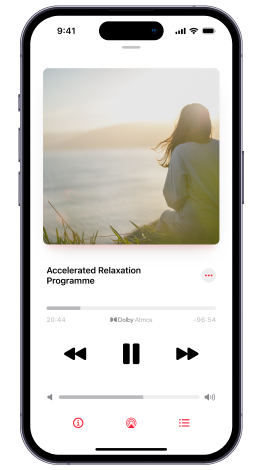More than half of all the people who book one or more hypnotherapy sessions with me do so because they have problems with anxiety.
If that isn’t an indication that anxiety is very common, then I don’t know what is!
One interesting line of my work is that people will often confide in me in much the same way they would a doctor.
And while it would be an exaggeration to say that nearly everyone I meet says they have an issue with anxiety, you would be amazed by the number of people who do tell me that they get nervous in front of an audience. Or when talking to colleagues at the bar.
Or maybe when they are dealing with strangers. Or they are in any number of other situations that they find challenging, such as boarding a plane or visiting a clinic for an injection.
What’s interesting is that the workplace frequently crops up as the source of people’s anxiety.
It is logical when you think about it. You are far more likely to be in the presence of other people when at work than when you are at home. And people often = anxiety!
So the chances of you finding yourself in an anxiety-inducing situation increase in the office.
Trying to ‘muscle through’ anxiety
Many people brush away feelings of anxiety and try and ‘muscle through’.
But you don’t have to follow this path. If anxiety is holding you back, just a couple of online hypnotherapy sessions (or in-person if you prefer) may be all you need to completely change the paradigm.
Imagine how it would feel to go into work and not feel the anxiety or crushing feelings of self-doubt you regularly endure?
Hypnotherapy for anxiety is fast, and it’s effective, too. I can say this with confidence because I have now treated more than 3,000 people for anxiety-related disorders. Check out my testimonials if you have a moment – they’re a good way to get a feel for the process.
Checking your anxiety levels
To find out if you are perhaps experiencing more anxiety than you would like to, in this blog I wanted to explore some of the common feelings associated with anxiety.
If two or more of these apply to you, then I think it is safe to say that you have an issue with anxiety and you would perhaps do well to try and get help.
Because if you were able to alleviate it, you would likely feel much better at work – and perform better, too.
So grab yourself a pen, and go through the following checklist…
The anxiety checklist
1 You feel jittery or on edge for even a few minutes a day at work.
2 You often have difficulty thinking straight and concentrating. Not because you are thinking about last night’s episode of Succession, but because of work issues or people within the office.
3 You generally feel worried or threatened at work. It may be because of an individual or by circumstances – such as fear you may lose your job.
4 You find yourself ruminating over limiting or negative thoughts at different points throughout the day. For example, “Why is everybody getting promoted apart from me?” or “I hope they don’t ask me to speak at this meeting.”
5 You imagine worst-case scenarios about work. These could be to do with problematic colleagues, your workload or other issues.
6 You make excuses to get out of things that make you feel stressed/anxious when you think about them, such as presentations.
7 You don’t like going to the bar with your colleagues after work because you find small talk difficult. Or perhaps you continue to feel like an outsider.
8 You have problems with your digestive system during those times that you’re at work – problems that may recede over the weekend. This could be indicative of stress-induced IBS.
9 You have panic attacks at work.
10 You experience anxiety-related symptoms such as sweating, rapid heartbeat, trembling or hyperventilating in the office or when heading to work.
A problem for millions
Millions of people around the world endure anxiety and stress every single day when they go to work.
Often, however, we have choices that we are not aware of.
Did you know, for example, that during clinical hypnotherapy, the mind can be reprogrammed to find a kinder, gentler place to go than the automatic fight, flight or freeze response that initiates in times of stress?
Or that the positive internal self-talk that I teach people to use during hypnotherapy sessions can have long-lasting benefits?
Techniques such as Havening, meanwhile, can set you up for the day ahead, providing resilience and positive energy.
And EMDR is a technique we can use to help to neutralise past traumatic memories such as disastrous presentations or interactions with office bullies.
If anxiety at work is affecting your life, you don’t have to struggle on alone.
I have helped many hundreds of people to deal with workplace anxiety issues and I provide a completely tailored, confidential service that is designed to help you face the world anew.

